Oktoberfest is Germany’s most famous festival, but if you’ve never been, arranging a trip can be daunting. Here’s everything you need to know. Be prepared: it's much more than just beer and pretzels.
Oktoberfest Started Over 200 Years Ago
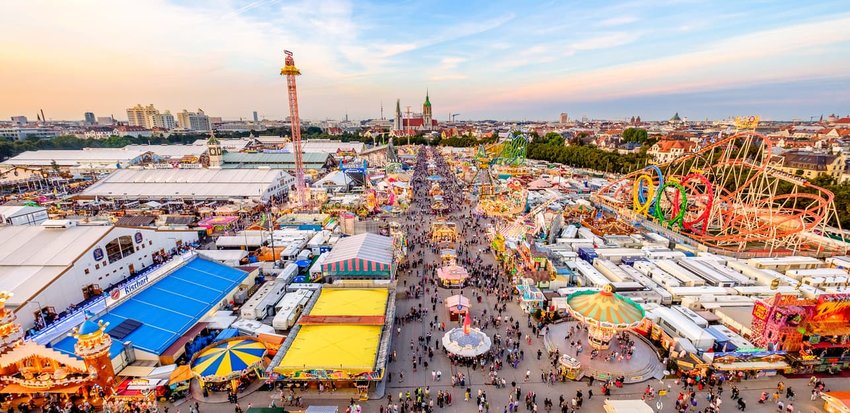
Back in 1810, Bavaria’s Crown Prince Ludwig and Princess Therese von Sachsen-Hildburghausen tied the knot. To celebrate the occasion of their marriage, they threw a five-day party. Not surprisingly, it went down very well with the citizens of Munich and so the following year, the city decided to do it again. And so it continued, and grew into the massive event we know today, attracting over 6 million visitors and earning the city an estimated one billion euros. Instead of five days, today’s Oktoberfest lasts over two weeks and actually begins at the end of September.
It Begins with a Parade
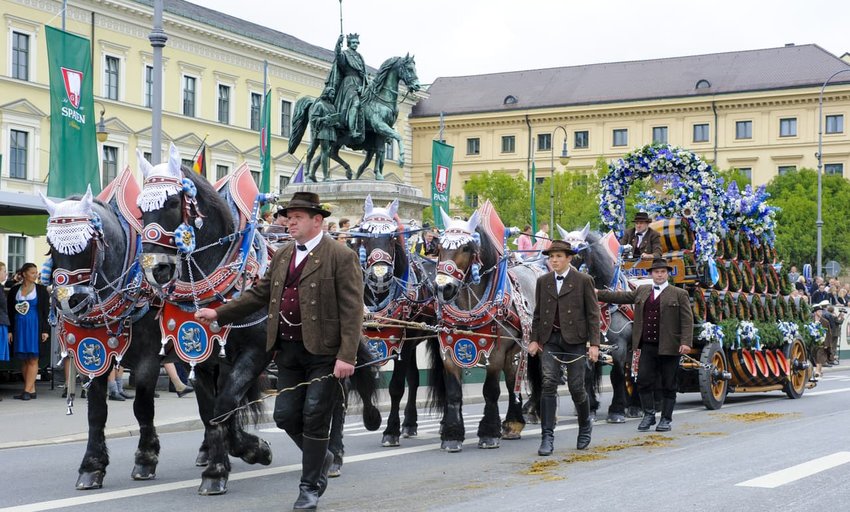
Horse-drawn carriages, drays, decorated floats and musicians form an impressive procession as they parade from Sonnenstraße-Schwanthalerstraße to the Oktoberfest site. The city’s mayor enters the Schottenhamel beer tent, one of the largest of the beer tents with a capacity of 10,000 people. (This is no small affair!) The mayor ceremoniously taps the first keg. Locals place bets on how many taps it takes to get the beer flowing, with jeers from the assembled crowd if it takes too many. The record, for the record, is a mere two.
With a cry of “O’zapt ist!” he declares the festival open and the action kicks off. The following day, there’s another parade, this one even bigger and better than the first. It’s called the Costume and Riflemen’s Parade and participants walk a seven-kilometer route. You’ll see people in regional costume, marching bands, street performers, riflemen and even cows, making this one of the most compelling sights of the entire festival.
Calling it Oktoberfest Identifies You as a Tourist
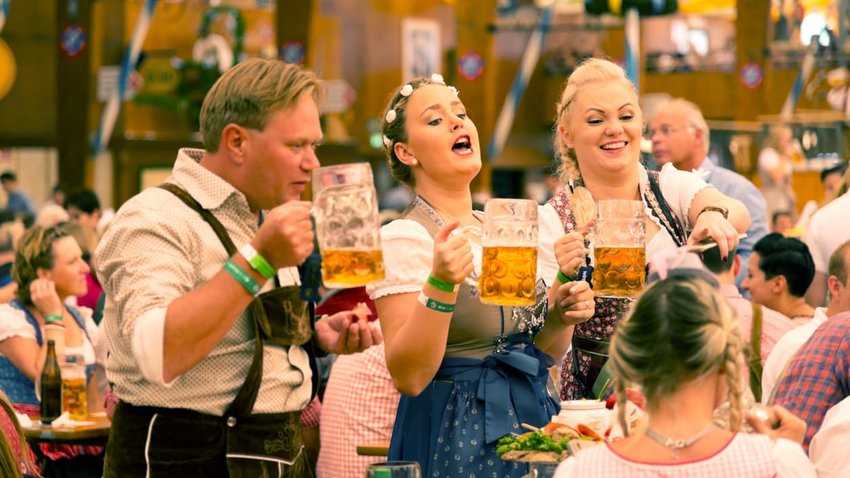
Locals never call their beer festival "Oktoberfest," instead referring to it as the "Wiesn" (pronounced "vee-sin"). The name comes from Theresienwiese, or Therese’s fields in English. This is an open space right next to Munich city center. For much of the year, it stands empty, but for those two weeks in autumn, it is transformed, brimming with huge beer tents, fair rides and food stalls. The Wiesn provides a good opportunity for you to acquaint yourself with the local cuisine, particularly käsespätzle (cheese noodles), weisswurst (white sausage), brez’n (soft pretzels) and sauerkraut (pickled cabbage).
Only a Select Few Companies are Permitted to Sell Beer
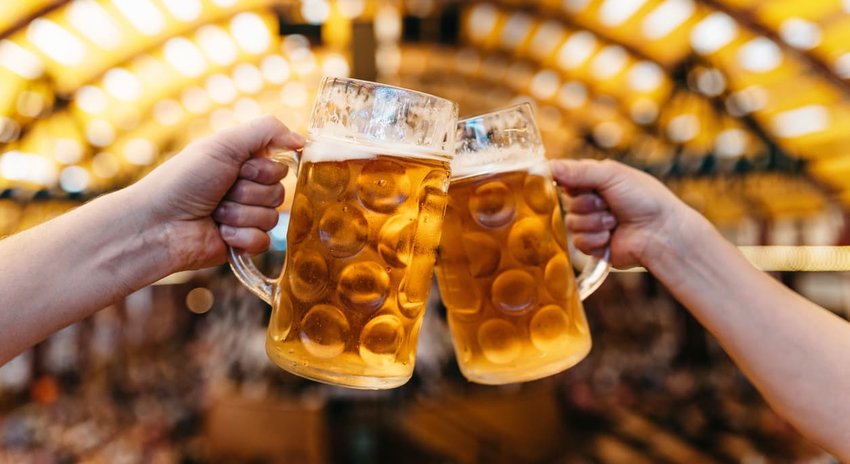
The festival is highly regulated and although approximately 7.5 million liters of beer are served, they come from just six breweries: Augustiner-Bräu, Hacker-Pschorr-Bräu, Löwenbräu, Paulaner, Spatenbräu, Staatliches and Hofbräu-München. They’re housed in 34 beer tents: 14 large and 20 small. The most famous is possibly the Hofbräufestzelt, run by the well-known Hofbräu brewery; look out for the hops decorating the ceiling. The sixteenth-century Hofbräuhaus is a permanent fixture in the center of Munich. Whichever tent you choose, learn the words to “Ein Prosit”, the most common drinking song in Germany, and prepare to get to your feet and sing yourself hoarse.
Oh, and don’t try to smuggle out a beer glass at the end of the night. You will fail. The sober security personnel on the gates confiscated an estimated 120000 glasses last Oktoberfest. Buy yourself a souvenir glass instead!
You’re Going to Need a Seat
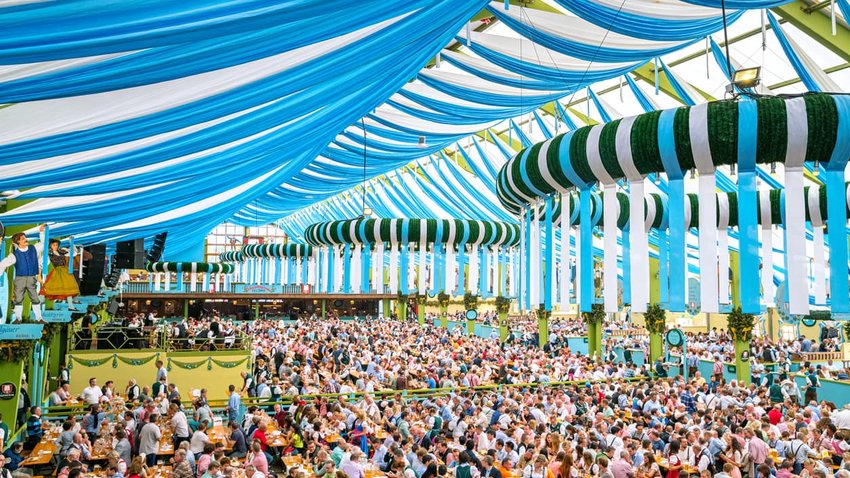
Once the party starts, you need to be seated if you want to be served. There are no exceptions: no one is allowed to drink standing up, unless, of course, they’re singing. To guarantee yourself a seat, it’s wise to be organized. Allocations go on sale ten months before schedule and they sell fast. You can show up unannounced, but you’ll face a lengthy wait for a table, especially in the evenings and during the weekends. In any case, you’re going to need a hotel room, and they get booked up quickly as well.
You Don’t Need to Dress the Part, But They Will
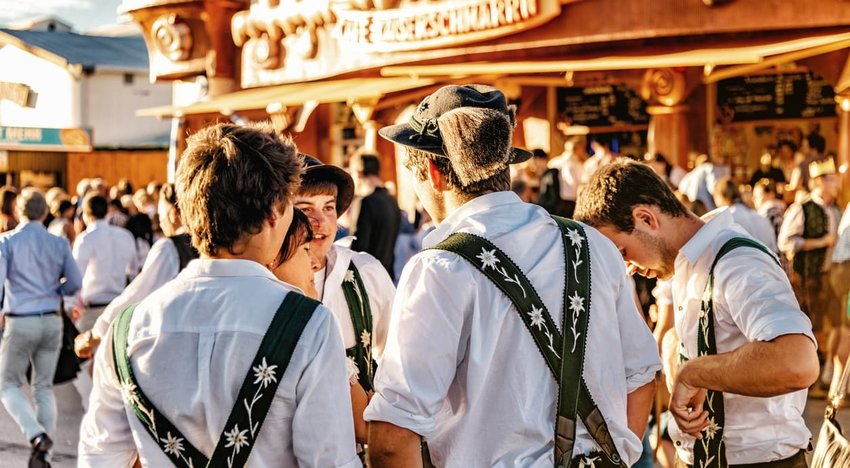
Wait staff in traditional lederhosen and dirndls carry handfuls of beer glasses to the tables. It’s a competition to see who can carry the greatest number of glasses in one go. The current man to beat is Oliver Struempfl, who lifted 27, but technically his record doesn’t count as the feat was accomplished in nearby Gillemoos and not in Munich.
It's a Family Event
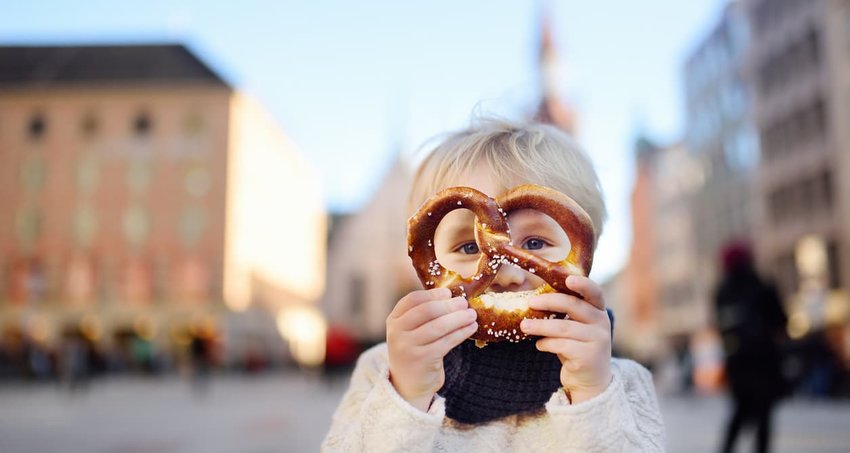
You could be forgiven for thinking that with all that alcohol, this party is adults only, but it’s not. In actual fact, before 6pm, you’ll experience what’s nicknamed “quiet Oktoberfest”. Aimed at older members of the community and those with young children, the music’s softer and the event is a more genteel occasion. Tuesday is family day. Amusement rides are discounted and it’s really popular with families.